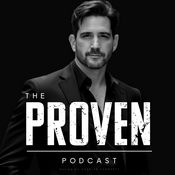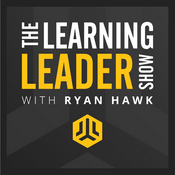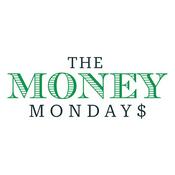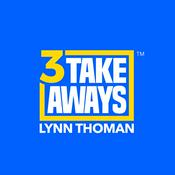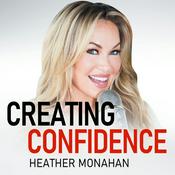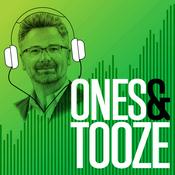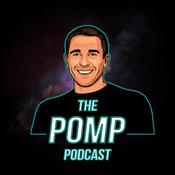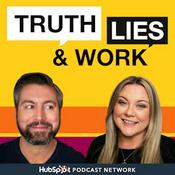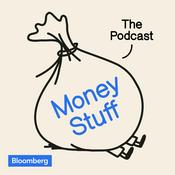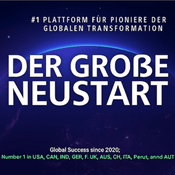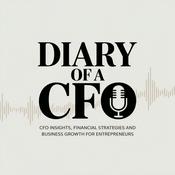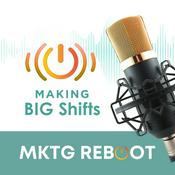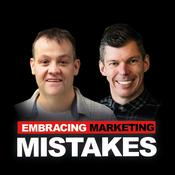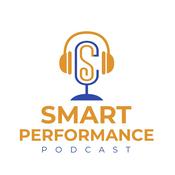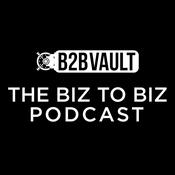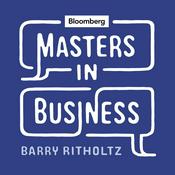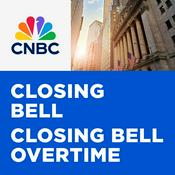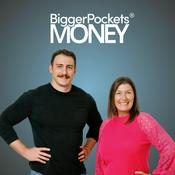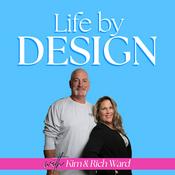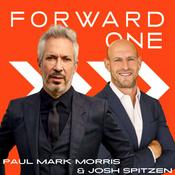122 episodes
AI Agent Browsers: Should you use one? | ChatGPT Atlas vs Perplexity Comet vs Arc Dia
1/29/2026 | 58 mins.Today’s Episode
ChatGPT just made huge waves with its Atlas browser. Perplexity made waves before that with its Comet browser. And Atlassian just spent a billion dollars to buy Dia.
Big companies are making big moves in the AI browser space.
But should you use an AI browser? Is it safe? Will it make you more effective as a PM?
I asked this question at Berkeley last month during my keynote. Out of 500 PMs in the room, literally two hands went up.
That needs to change.
Naman Pandey has tested these browsers more extensively than anyone else. He runs the Ready Set Do podcast and has spent hundreds of hours finding the real use cases that actually work.
Today, we’re putting all three browsers head-to-head. Same prompts. Same tasks. Live demos.
You’ll see which browser wins for each use case, where they fall over, and the exact workflows to use them as a PM.
----
Check out the conversation on Apple, Spotify and YouTube.
Brought to you by:
* Jira Product Discovery: Plan with purpose, ship with confidence
* Mobbin: Discover real-world design inspiration
* Pendo: The #1 Software Experience Management Platform
* Product Faculty: Get $550 off the AI PM Certification with code AAKASH550C7
* Land PM job: 12-week experience to master getting a PM job
----
If you want access to my AI tool stack - Dovetail, Arize, Linear, Descript, Reforge Build, DeepSky, Relay.app, Magic Patterns, and Mobbin - for free, grab Aakash’s bundle.
Are you searching for a PM job? Join me + 29 others for an intensive 12-week experience to master getting a PM job. Only 14 seats left.
----
Key Takeaways:
1. AI agent browsers are underhyped for PMs - Only 2 out of 500 PMs at Berkeley were using them. If you're doing web research, competitor analysis, or data scraping, you're leaving hours on the table every week.
2. The three browsers serve different purposes - ChatGPT Atlas for deep research across multiple pages. Perplexity Comet for real-time quick lookups. Arc Dia for workflow automation. They're not competing head-to-head.
3. Atlas dominates data extraction - Scrape YC companies, find recruiters on LinkedIn, build competitor comparison tables. What took 2-3 hours now takes 10 minutes with one prompt.
4. Comet wins on speed for real-time info - Stock prices, sports scores, breaking news. It's the fastest by far. Perfect for quick research sprints across Reddit, Twitter, and news sites.
5. Dia automates repeated workflows - Monitor competitor pricing weekly. Document onboarding flows. Generate recurring reports. Set it once, let it run on schedule.
6. Tab context is the hidden superpower - Open 5 competitor sites. Ask "What's the common pricing strategy?" The AI reads all tabs and synthesizes insights. Eliminates copy-paste friction.
7. The job seeker use case is mind-blowing - "Find 20 PMs at Google, get their LinkedIn profiles, draft personalized DMs." Atlas does this in 15 minutes. Used to take 2-3 hours manually.
8. Onboarding analysis becomes trivial - "Go through Notion's signup flow, capture screenshots, document each step." Dia does this in 5-10 minutes. Perfect for competitive analysis.
9. Don't log into sensitive accounts - Banking, email, social media with private data - keep these in your regular browser. Use AI browsers only for public research and data extraction.
10. The slowness matters less than you think - Yes, they're slow compared to Google. But if the alternative is 2 hours of manual work, waiting 10 minutes is a massive win. Batch requests and walk away.
----
Related Content
Newsletters:
* AI Product Strategy
* How to Build AI Products
* AI Prototyping Tutorial
* How to Become an AI PM
* Ultimate Guide to Onboarding
Podcasts:
* How to Build ChatGPT Apps
* AI Prototyping for PMs
* Everything You Need to Know About AI
* AI Product Management Course
----
PS. Please subscribe on YouTube and follow on Apple & Spotify. It helps!
If you want to advertise, email productgrowthppp at gmail.
This is a public episode. If you'd like to discuss this with other subscribers or get access to bonus episodes, visit www.news.aakashg.com/subscribe- This is a free preview of a paid episode. To hear more, visit www.news.aakashg.com
Today’s Episode
When you first start using AI prototyping tools, you get wowed.
You type “create me a CRM application” and boom a fully functioning app appears in 60 seconds.
But here’s the problem.
It looks generic. The styling is basic. The features are vanilla. You’d never ship this to customers.
This is AI slop.
Sachin Rekhi was the former Head of Product at LinkedIn Sales Navigator. He’s now teaching thousands of PMs at Reforge how to master AI prototyping.
----
Brought to you by - Reforge:
Get 1 month free of Reforge Build (the AI prototyping tool built for PMs) with code BUILD
----
Key Takeaways:
1. Product shaping changes everything - Anthropic builds multiple prototypes for every problem, launches internally, sees what people use, then productionizes winners. This used to only be possible at Apple with massive labs.
2. AI slop is real - Type "create a CRM" and you get generic styling, vanilla features, basic scenarios. Looks magical but you'd never ship it. The challenge is going from slop to production-grade prototypes.
3. The 15-skill mastery ladder - Apprentice level: prompting, editing, design consistency. Journeyman: versioning, debugging, diverging. Master: functional prototyping, product shaping, analytics integration.
4. Design consistency starts with baselining - Take screenshot of your product. Recreate it. Iterate until perfect. Save as template. Now every prototype inherits your design system automatically.
5. Diverging is the secret weapon - Generate 4 design variants instead of 1. Magic Patterns has this built in. Or use multiple tools to get 8 options. Evaluate alternatives like designers do.
6. Functional prototypes unlock real validation - Integrate OpenAI API for actual responses. Add PostHog for session recordings and heatmaps. Build surveys. Track clicks. Test with real data, not mockups.
7. The tools face-off: which to actually use - Bolt for speed. V0 for beautiful UIs. Replit for full-stack. Magic Patterns for product teams with diverging. Reforge Build for context integration. Cursor for technical PMs.
8. The $5/month unlimited execution hack - Host n8n on Hostinger instead of paying per execution. Get unlimited runs. Build workflow that backs up to Google Drive for version history.
9. PMs can build what used to require engineering - Calendar integration. Email agents. Analytics dashboards. Multi-model comparison. Survey collection. All from prompts. No code required.
10. Traditional workflows beat agents for production - Workflows save tokens, run faster, and are more reliable. Use agents only when tasks need real decision-making. For known processes, use workflows.
----
Where to Find Sachin
* LinkedIn
* Newseltter
* X
* Youtube
* Reforge cources
----
Related Content
Newsletters:
* AI Product Strategy
* How to Build AI Products
* AI Prototype to Production
* AI Prototyping Tutorial
* Product Requirements Documents
Podcasts:
* AI Prototyping for PMs
* How to Become an AI PM
* Everything You Need to Know About AI
----
PS. Please subscribe on YouTube and follow on Apple & Spotify. It helps!
If you want to advertise, email productgrowthppp at gmail. - This is a free preview of a paid episode. To hear more, visit www.news.aakashg.com
Today’s Episode
ChatGPT Apps might be the next billion-dollar opportunity.
Or they might be another ChatGPT feature that gets abandoned in 6 months.
I genuinely don’t know yet.
But when people say “this could be the new App Store,” my ears perk up. I spent four years building an iOS app in the early days of the App Store. The distribution was incredible. We grew fast purely because of where we were.
So when OpenAI announced the ChatGPT App Store, I needed to understand it.
I brought in Colin Matthews to break it down. Colin is one of my go-to sources for technical product topics. Our AI prototyping collaborations have been some of your favorite episodes.
Today, we’re exploring ChatGPT Apps and what they mean for you as a product builder.
----
Check out the conversation on Apple, Spotify and YouTube.
Brought to you by:
* Maven: Get $500 off with my code on Coil Build ChatGPT Apps course
* Vanta: Automate compliance, Get $1,000 with my link
* Land PM job: 12-week experience to master getting a PM job
* Mobbin: Discover real-world design inspiration
* NayaOne: Airgapped cloud-agnostic sandbox
----
If you want access to my AI tool stack - Dovetail, Arize, Linear, Descript, Reforge Build, DeepSky, Relay.app, Magic Patterns, and Mobbin - for free, grab Aakash’s bundle.
Are you searching for a PM job? Join me + 29 others for an intensive 12-week experience to master getting a PM job. Only 23 seats left.
----
Key Takeaways:
1. ChatGPT apps = MCP + widgets - The Model Context Protocol (invented by Anthropic) lets AI agents call external tools. OpenAI added UI widgets on top to create embedded app experiences directly in chat.
2. 900M weekly active users = massive distribution opportunity - This is the new SEO. Early data shows 26% higher conversion from AI traffic vs traditional search. Every enterprise will eventually build here.
3. You're building for multiple platforms - MCP works across ChatGPT, Claude (coming soon), Cursor, and other AI tools. Build once, distribute everywhere. Gemini doesn't support it yet.
4. Apps get called based on tool descriptions - Your metadata matters. Like SEO but for LLMs. Run evals to test if correct prompts trigger your tools. Iterate on descriptions to improve discovery.
5. Three eval categories: direct, indirect, negative - Direct: user names your app. Indirect: user describes outcome. Negative: irrelevant request shouldn't trigger your tool. Test all three systematically.
6. PMs should prototype but engineers ship production - Use tools like Chippy to prototype quickly and test concepts. Show stakeholders real interactions. Engineering team builds the production version.
7. Enterprise-first, solo builders second - Large companies (Target, Uber, Canva) are early adopters chasing distribution. But huge opportunity for indie builders once public marketplace launches.
8. Best opportunities: embedded collaboration tools - Spreadsheets, task lists, whiteboards where ChatGPT can partner with you. Not just search results—actual interactive experiences.
9. Error analysis on observability logs is critical - Track what prompts triggered which tools with what parameters. Look for mismatches between expected and actual behavior. Iterate tool descriptions.
10. Marketplace launching by end of 2024/early 2025 - Currently only launch partners can publish. Public marketplace coming soon means anyone can ship apps and reach ChatGPT's massive user base.
----
Where to Find Colin
* LinkedIn
* Newsletter
Related Content
Newsletters:
* AI Prototyping Tutorial
* How to Build AI Products
* AI Product Strategy
* Complete Course: AI Product Management
Podcasts:
* AI Prototyping for PMs
* How to Become an AI PM
* Everything You Need to Know About AI
----
PS. Please subscribe on YouTube and follow on Apple & Spotify. It helps!
If you want to advertise, email productgrowthppp at gmail. How to Do AI Evals Step-by-Step with Real Production Data | Tutorial by Hamel Husain and Shreya Shankar
1/15/2026 | 1h 5 mins.Today’s Episode
Everyone’s demoing AI features. Few are shipping them to production reliably.
The gap? Evals.
Not the theoretical kind. The real-world kind that catches bugs before users do.
Hamel Husain and Shreya Shankar train people at OpenAI, Anthropic, Google, and Meta on how to build AI products that actually work. Their Maven course is the top-grossing course on the platform.
Today, they’re walking you through their complete eval process.
----
Brought to you by:
* The AI Evals Course for PMs & Engineers: You get $800 with this link
* Vanta: Automate compliance, Get $1,000 with my link
* Jira Product Discovery: Plan with purpose, ship with confidence
* Land PM job: 12-week experience to master getting a PM job
* Pendo: the #1 Software Experience Management Platform
----
If you want access to my AI tool stack - Dovetail, Arize, Linear, Descript, Reforge Build, DeepSky, Relay.app, Magic Patterns, and Mobbin - for free, grab Aakash’s bundle.
Are you searching for a PM job? Join me + 29 others for an intensive 12-week experience to master getting a PM job. Only 23 seats left.
----
Key Takeaways:
1. AI evals are the #1 most important new skill for PMs in 2025 - Even Claude Code teams do evals upstream. For custom applications, systematic evaluation is non-negotiable. Dog fooding alone isn't enough at scale.
2. Error analysis is the secret weapon most teams skip - Looking at 100 traces teaches you more than any generic metric. Hamel: "If you try to use helpfulness scores, the LLM won't catch the real product issues."
3. Use observability tools but don't depend on them completely - Brain Trust, LangSmith, Arise all work. But Shreya and Hamel teach students to vibe code their own trace viewers. Sometimes CSV files are enough to start.
4. Never use agreement as your eval metric - It's a trap. A judge that always says "pass" can have 90% accuracy if failures are rare. Use TPR (true positive rate) and TNR (true negative rate) instead.
5. Open coding then axial coding reveals patterns - Write notes on 100 traces without root cause analysis. Then categorize into 5-6 actionable themes. Use LLMs to help but refine manually.
6. Product managers must do the error analysis themselves - Don't outsource to developers. Engineers lack domain context. Hamel: "It's almost a tragedy to separate the prompt from the product manager because it's English."
7. Real traces reveal what demos hide - Chat GPT said the assistant was correct but missed: wrong bathroom configuration, markdown in SMS, double-booked tours, ignored handoff requests.
8. Binary scores beat 1-5 scales for LLM judges - Easier to validate alignment. Business decisions are binary anyway. LLMs struggle with nuanced numerical scoring.
9. Code-based evals for formatting, LLM judges for subjective calls - Markdown in text messages? Write a simple assertion. Human handoff quality? Need an LLM judge with proper rubric.
10. Start with traces even before launch - Dog food your own app. Recruit friends as beta testers. Generate synthetic inputs only as last resort. Error analysis works best with real user behavior.-
---
Where To Find Them
* LinkedIn:
* Hamel: Hamel’s LinkedIn
* Shreya: Shreya’s LinkedIn
* AI Evals Course: World’s best AI Evals Course (You get $800 off with this link)
Related Content
Newsletters:
* AI Evals
* AI PM Observability
* AI Testing
* LLM Judge
* AI Prototype to Production
* AI Product Strategy
* How to Build AI Products
* Prompt Engineering
Podcasts:
* AI Evals: Everything You Need to Know to Start
* Everything you need to know about AI (for PMs and builders)
* Carl Vellotti on Claude Code
* Marily Nika on Google AI PM Tool Stack
* Pawel Huryn on n8n for PMs
PS. Please subscribe on YouTube and follow on Apple & Spotify. It helps!
This is a public episode. If you'd like to discuss this with other subscribers or get access to bonus episodes, visit www.news.aakashg.com/subscribe- Today's Episode
Carl Vellotti is back.
His first episode hit 30k views. My most popular episode in months.
Today, he’s giving you the advanced playbook for Claude Code.
Claude Code hit $1 billion ARR in December. Fastest product ever to reach that milestone. Under 6 months.
Carl has been building with Claude Code every single day. He’s made all the mistakes. He’s learned all the expert workflows and tips.
In today’s episode, he shares everything.
----
If you want access to my AI tool stack - Dovetail, Arize, Linear, Descript, Reforge Build, DeepSky, Relay.app, Magic Patterns, and Mobbin - for free, grab Aakash’s bundle.
Are you searching for a PM job? Join me + 29 others for an intensive 12-week experience to master getting a PM job.
----
Brought to you by:
Amplitude: The market-leader in product analytics
Pendo: the #1 Software Experience Management Platform
Jira Product Discovery: Move discovery and roadmapping out of spreadsheets
Miro: The innovation workspace
----
Key Takeaways
1. Claude Code hit $1B ARR in 6 months - fastest product ever. Anthropic optimized for power users doing deep work. Fewer users, insanely deep usage. Carl: "I spend all day in Claude Code. It gets to the point where you never really have to leave."
2. MCPs connect Claude to everything in 2 minutes - Model Context Protocol invented by Anthropic. One command to install Linear, Google Workspace, Slack. Essential stack: documents first, task management second, communication third, data sources fourth.
3. End-to-end PM workflow takes one morning instead of one week - Survey creation → analysis → PRD → presentation → 19 tickets. All through MCPs. Carl didn't use templates. Opus 4.5 handled everything.
4. Skills are pre-built templates but don't always auto-trigger yet - Solution: specify explicitly. "Create presentation using your presentation skill." Build Skills for anything you do more than twice. That's the compound effect.
5. Real Google Slides, not images - Carl's presentation skill created 19 fully editable slides from PRD. Takes a few minutes because Claude creates slides in parallel. "This is saving you hours. We used to spend entire afternoons turning PRDs into decks."
6. GitHub turns Claude into remote worker - Create issues from your phone. @mention Claude. It works while you're away. Carl's journal is a private GitHub repo. Voice transcriptions → issues → Claude updates markdown.
7. Workflows beat agents for production - Level 1 workflow: 5,000 tokens, 40 seconds. Level 3 agent: 90,000 tokens, 90 seconds. Carl's rule: "If something can be expressed as code, code it. Leave agents for cognitive work."
8. Production best practices separate hobbyists from pros - Set error workflows. Add retry logic (3 attempts, 1-second delays). Pin data during development. Use reasoning effort appropriately. Write detailed tool descriptions.
9. Real challenge is building reusable workflows - Learning basics takes a day. First workflow takes hours. But having 50 workflows built over months means everything is automated. Carl: "Because I have workflows for all these things already built, I can do it all in one shot."
10. Tools improve faster than you can learn them - Carl: "By the time you see this, there might be Claude 5." Your workflows from today will 10x when better models drop. PMs who started 6 months ago aren't just 6 months ahead, they're 100x ahead because systems compound with every improvement.
----
Where to Find Carl Vellotti
* Linkedin
* X (Twitter)
* Instagram
* Newsletter
Related Content
Newsletters:
* How to Use Claude Code Like a Pro
* Steal 6 of My Claude Skills
* Claude Skills Tutorial
* AI Agents: The Ultimate Guide for PMs
* Practical AI Agents
Podcasts:
* The Ultimate Guide to n8n for PMs, with Pawel Huryn
* This is what a Google AI PM’s Tool Stack Looks Like, with Marily Nika
* How to Use Claude Code Like a Pro (Carl’s First Episode)
----
PS. Please subscribe on YouTube and follow on Apple & Spotify. It helps!
If you want to advertise, email productgrowthppp at gmail.
This is a public episode. If you'd like to discuss this with other subscribers or get access to bonus episodes, visit www.news.aakashg.com/subscribe
More Business podcasts
Trending Business podcasts
About The Growth Podcast
Join 65K+ other listeners in the worlds biggest podcast on AI + product management. Host Aakash Gupta brings on the world's leading AI PM experts. www.news.aakashg.com
Podcast websiteListen to The Growth Podcast, Proven Podcast and many other podcasts from around the world with the radio.net app
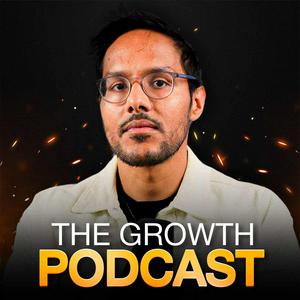
Get the free radio.net app
- Stations and podcasts to bookmark
- Stream via Wi-Fi or Bluetooth
- Supports Carplay & Android Auto
- Many other app features
Get the free radio.net app
- Stations and podcasts to bookmark
- Stream via Wi-Fi or Bluetooth
- Supports Carplay & Android Auto
- Many other app features


The Growth Podcast
Scan code,
download the app,
start listening.
download the app,
start listening.

